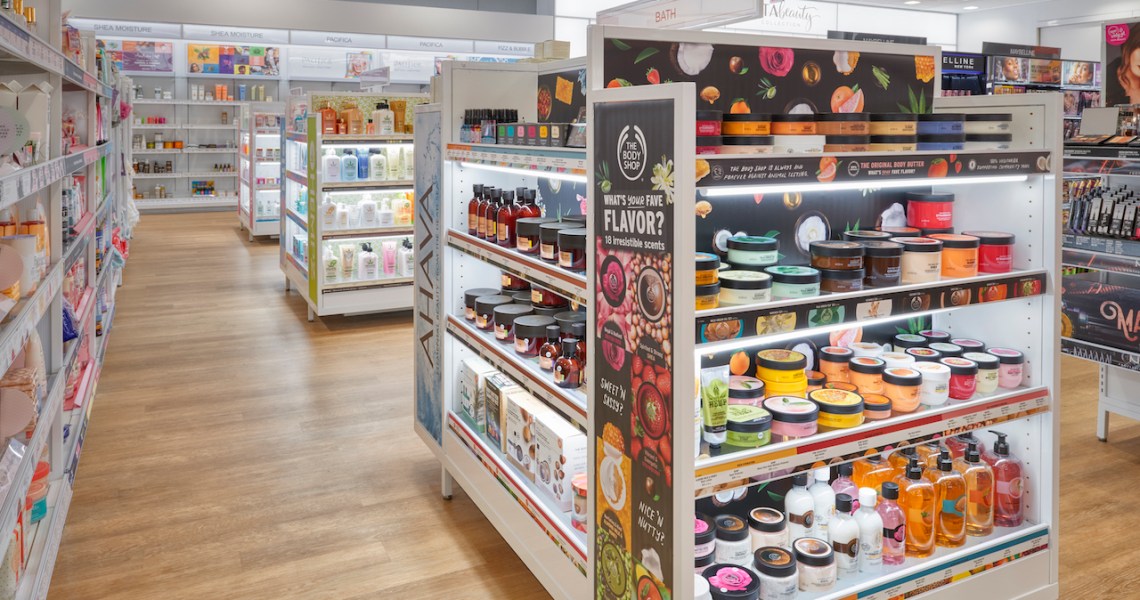On Thursday night, Glossier founder and CEO Emily Weiss announced on the company’s blog and Instagram that Glossier would close its four temporary and permanent retail locations for at least two weeks beginning Friday, March 13 due to coronavirus concerns. The company is also delaying the opening of Glossier Arizona, which was scheduled for next Wednesday.
Referencing the Atlantic’s Cancel Everything article from earlier in the week, Weiss wrote, “I read that Atlantic piece from bed last night with a heavy heart (‘social distancing’ is basically the opposite of our mission), and reconsidered my original position of ‘let’s follow, not lead’ on the retail front. If stores start closing, we’ll quickly follow suit. If foot traffic drops, we’ll close. Then I thought: Wait a minute, we are leaders in retail, in so many ways. Our permanent and temporary offline experiences are more of a daily community event than a traditional store. Why wouldn’t we lead here? This quickly became an easy, albeit painful, decision.”
Glossier isn’t the only millennial-minded beauty brand closing stores. Friday afternoon, facial bar Heyday announced the temporary closure of its 11 shops across the country for at least this week (March 14 to 20). Bigger retailers, like Sephora and Ulta, are pressing pause on in-stores services and events and rethinking how to drive online sales.
Michael Pollak, Heyday CEO, told Glossy, “To live our brand promise of people-first skin care, we are putting the health and safety of our team and client community first. This is a profound and unprecedented moment of heightened anxiety for our country, and it was a very important decision for Heyday to take stock of what this means for our team, our customers and our communities. As a personal service business, we feel it is our duty and responsibility to support the national effort taking place. We are proud of our team for their support of our decision and our collective commitment to serving as responsible citizens. We will continue to monitor the situation and provide updates to our team and client community.”
While certainly Glossier and Heyday will feel a sales hit from these closures — Heyday is a service-based business, though it does sell products — their moves tie back to their larger social responsibility efforts to their customers. According to millennial and Gen-Z consumer insights platform Perksy, 50% of millennials and 44% of Gen-Z shoppers are worried about the coronavirus. Forty-eight percent of Perksy’s 500-person survey pool said they believe the coronavirus will be around for four more months or longer, and 20% believe the sickness will last seven months or more.
A Glossier spokesperson told Glossy that the company is not making any amendments to its online shipping policy. For the time being, shipping will not be move to a free model and will remain $4.50 (for orders to arrive in three to five business days) and $25 for rush (one to two business days). Pollack said Heyday will allocate 10% of all online sales to help support paying its shop staff, along with continuing to pay hourly rates while stores are closed.
Sephora, meanwhile, will not close its 460-plus stores in the U.S., much less its over 2,600 stores in worldwide, but it is offering free shipping on Sephora.com and Sephora.ca through March 31, based on an email sent on March 11 by Jean-André Rougeot, CEO and president of Sephora Americas. Moreover, Sephora is “suspending all paid and free in-store services, makeup and skin-care applications and classes until further notice.”
Based on a March 12 email Glossy obtained from Sephora’s brand education team to brand partners, impacted in-store services include Perk Treatment by HydraFacial, including Perk by Brands; Anastasia Brow Studio; and Dry Styling with DryBar; among others. That same email also informed brand partners of the following protocol around services: “Until further notice, brands will no longer perform services or physically touch or apply product to any person or client during brand events and visits. Brands should not bring demo brushes into the store.”
Because these beauty companies are eliminating customers’ ability to touch, feel and try product in physical locations, pushing digital will be paramount for these businesses. Beyond elevating online opportunities for beauty discovery and then purchasing in stores, now is the time to push digital sales. According to data from market research firm Euromonitor International, e-commerce beauty and personal care is a $47 billion industry and has grown the fastest of all channels globally, but it represents only 11% of all beauty and personal care sales as of 2018. Free shipping is an easy first step to compete with Amazon, where many shoppers are spending their time right now because of its abundant offerings of food and water.
Ulta is pushing ahead with in-store hair, skin, brow and makeup services in most locations for now, though CEO Mary Dillon said in an email to customers on March 11 that they should “reschedule if you’re not feeling well.” Ulta announced fourth quarter results yesterday, where it saw net sales grow 8.5% to $2,30 million year-over-year, but its outlook did not include any potential impact from the coronavirus outbreak, which will likely be seen in Q2. Dillon, however, said anecdotally that traffic this week has been slower in stores.
Brand partners like Tula, who were slated for a rigorous slate of 500 in-store events for 2020, have pressed pause until mid-April based on Ulta’s “guidance.”
“We will continue making necessary adjustments to our events strategy, as the situation continues to unfold,” said Savannah Sachs, Tula CEO.




